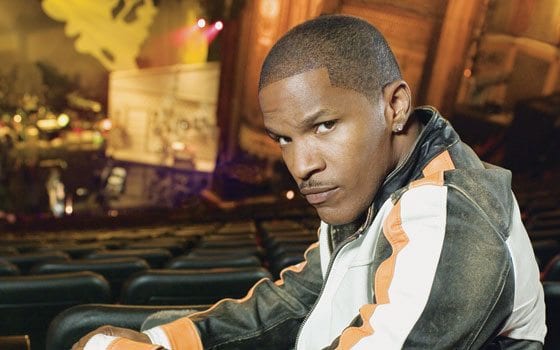
Jamie Foxx’s new MTV reality series “From G’s to Gents,” airing Tuesdays at 10 p.m., aims to take self-proclaimed bad boys and transform them into proper gentlemen. (Banner file photo)
Jamie Foxx may never get a chance to star in a remake of “My Fair Lady,” but at least he can say that he played a modern-day Henry Higgins.
The comedian-turned-actor, who took home an Oscar for his portrayal of Ray Charles in the 2004 biopic “Ray,” is now putting a group of thugged-out Eliza Doolittles through their paces on the MTV reality series “From G’s to Gents.”
Airing at 10 p.m. on Tuesdays, the show was the brainchild of Foxx and reality veteran Cris Abrego, the man behind VH1 shows like “The Surreal Life” and “Flavor of Love.” Hosted by nattily attired former Diddy valet Fonzworth Bentley, “G’s” aims to take self-proclaimed urban bad boys and transform them into proper gentlemen. Or, as the MTV Web site puts it, the show “schools diamonds in the rough on how to lose the front, learn self-respect, realize their self-worth and market themselves accordingly.”
Among other things, this means the 14 contestants — who check their grills at the door — are given lessons in chivalry and etiquette, wardrobe makeovers, grammar instructions and mentoring from folks like Foxx, who have figured out how to move fluidly between the roles of “G” and “gent.” The last gent standing walks away with $100,000 and, hopefully, creators say, a new sense of self-esteem.
When talking up the show at the Television Critics Association press tour recently in Los Angeles, Foxx deferred to Bentley when it came to defining what it means to be a gentleman.
“When I think of the gentleman, I think of a man that can adapt, someone that’s worldly, someone that can be effective and accepted in all social situations,” said Bentley, author of “Advance Your Swagger: How to Use Manners, Confidence and Style to Get Ahead.”
The concept came to Foxx as he himself moved through the different aspects of his life, from the Hollywood scene to the hip-hop world, and from his business concerns to home life with his daughter.
Having very little “gangsta” history in his own upbringing, some would say Foxx is already a good role model. But the comic and singer said he feels like that’s not enough, and this show feed his desire to be motivational.
“You have to get out there and actually show and help, because when people see you from a distance, they don’t know what you are,” said Foxx, who pops up periodically on the show. “You get a chance to do a show like this and actually interact with these folks, and explain to them that you don’t have to lose everything about where you come from — because that’s not what we are trying to do — but there are certain things that you have to do in order to adapt in order to make that money, in order to make a great life for yourself.”
Foxx aims for the show to be inspirational, not sensational like some other reality programming.
“When you see these guys going through this transformation, it makes you feel good,” he said.
A major part of that, according to co-creator Abrego, is host Bentley’s commitment to helping those who wanted to be helped.
“A lot of those guys did come on expecting a typical reality experience and reality show, and I think when they ran into Bentley here, they realized how real and how invested he was in this process,” said Abrego.
“My goal was to make the lessons that they were being taught more important to them than winning the money,” says Bentley.
Ultimately, Bentley hopes that providing a peek behind the hardened outer shells of the “G’s” will help viewers broaden their perspectives about the people they pass on the street.
“When you see that young man that’s walking down the street and he has his pants below his behind and he’s using a lot of profanity and he’s vulgar, you know what? You’re going to look at him differently because of this show,” says Bentley. “You’re going to say, ‘There’s a young man who has goals. There’s a young man who has dreams,’ but he doesn’t have anybody probably around him to give him those tools.
“In that moment, instead of judging that young man or that young lady, you may drop a gem onto them, because that’s a future painter, a future producer or future journalist.”
Sarah Rodman is a staff music critic at the Boston Globe.






